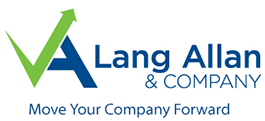As each calendar year draws to a close, many businesses have to think about their tax filing responsibilities. It can be confusing to figure out which forms to send out, especially as the IRS made some changes to its venerable Form 1099-MISC, Miscellaneous Information, a few years ago and assigned some of its former responsibilities to the relatively new Form 1099-NEC, Nonemployee Compensation.
Do you have freelancers?
Many businesses use freelancers, i.e., independent contractors, instead of or in addition to regular employees. Companies need to send these workers 1099-NECs if they paid them at least $600 during the year. A copy of Form 1099-NEC must be provided to the independent contractor by Jan. 31 of the year following payment. You also must send a copy of this form to the IRS by the same date.
What about other payments?
Although Form 1099-MISC is no longer applicable to freelancers, it still has plenty of uses:
- Rent payments.
- Prizes and awards.
- Other income payments.
- Medical and health care payments.
- Crop insurance proceeds.
- Cash payments for fish (or other aquatic life) you purchase from anyone engaged in the trade or business of catching fish.
- Generally, the cash paid from a notional principal contract to an individual, a partnership or an estate.
- Payments to an attorney.
- Any fishing boat proceeds.
All these sources of income require Form 1099-MISC for payments of at least $600. However, for royalties or broker payments instead of dividends or tax-exempt interest, the threshold is $10. In addition, Form 1099-MISC reports direct sales of at least $5,000 of consumer products to a buyer for resale anywhere other than a permanent retail establishment.
And don’t forget Form W-9
Independent contractors need to send Form W-9 to any client they’ve worked for during the year. It basically confirms the contractor’s name and Taxpayer Identification Number, and companies need this information to fill out Form 1099-NEC when tax season rolls around properly.
This summarizes the 1099 situation for both companies and payees. There are other rules and provisions. No matter your status, make sure you work closely with us so you meet all your responsibilities.
